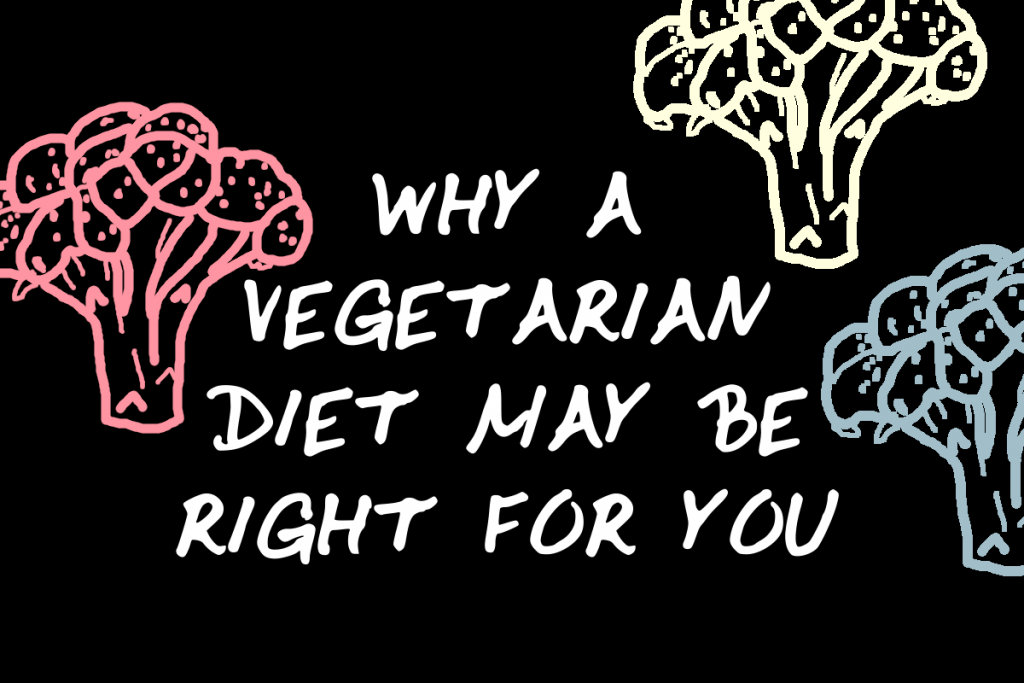
Most of us couldn’t imagine ourselves living a vegetarian lifestyle, but the vegetarian diet has some surprising health benefits and could potentially prevent many chronic diseases.
A vegetarian diet avoids consuming animal flesh (meat). The vegetarian eating pattern is common in Eastern tradition, dates back thousands of years, and was originally practiced with religious and moral pretenses. In the Western world, the vegetarian diet isn’t usually based on religious belief, but on physical, social, or environmental reasons. These include food sustainability of a plant-based diet in comparison to an omnivorous diet, and the positive effects a plant-based diet has on the dieter.
Vegetarian Diet vs. Vegetarianism
A vegetarian diet is an eating pattern that focuses on plant-based foods and avoids animal flesh. Vegetarianism is not only a vegetarian eating pattern, but a greater psychological, philosophical, and ethical belief that vegetarian eating is a moral and ethical way of life.
People who practice vegetarianism often eat vegan diets, which not only exclude animal flesh, but any food product made at the expense of another living creature.
But we don’t have to be vegans to be vegetarians. Also, we don’t need to hold a moral or ethical standpoint on animal cruelty or farming practices to eat plant-based foods. A vegetarian diet can be solely for the health benefits while we hold our own moral or ethical belief system.
Just because someone’s vegetarian, doesn’t mean they don’t like people who eat meat. Our friends and family probably eat meat, as the majority of Americans do, but we can still be around meat. Most people adopt a vegetarian diet because eating plant-based foods can have an incredible impact on the health of the mind and body.
Health Benefits of a Vegetarian Diet
Plant foods are rich in nutrients and dietary fiber, but generally low in calories. Adopting a vegetarian diet often leads to weight loss and many other great improvements.
Plant foods are great sources of B, C, and E vitamins as well as minerals like magnesium, potassium, copper, and manganese. Also, plant foods are typically low in saturated fats, trans fat, and cholesterol, which decreases the risk for cardiovascular disease, obesity, and type 2 diabetes.
If looking for a promising weight loss diet plan, the vegetarian diet has a lot to offer. The lower calorie options, along with the complex carbohydrates found in many plant foods, leads to a general increase in slow-burning energy. This energy boost can become a catalyst to an increase physical activity and active lifestyle.

Also, we must not be ashamed if we prefer adding a few animal-based foods into our mostly vegetarian diet plan. Up until the 60s and 70s, the vegetarian diet was broken into three different categories that included: those who eat no animal foods at all (vegan vegetarians), those who consumed milk and milk products (lacto-vegetarians), and those who consume milk, milk products, and eggs (lacto-ovo vegetarians) No one uses these terms anymore, but the basis for each diet still remains. Adding milk or eggs to a vegetarian diet plan could meet our dietary needs more adequately than taking supplementary vitamins and minerals to fill in any gaps.
The vegetarian diet has grown more popular as mass farming and the mass production of meat products have become standard in today’s society. People are frightened by the appearance of food borne illnesses like swine flu and mad cow disease and the chance that animal meat may be contaminated with pathogens and carcinogens from poor farming conditions and the overuse of antibiotics and growth hormones on the animals.
Also, most of us don’t want to experience heart complications or high cholesterol and blood pressure spikes due to the high levels of saturated fats found in animal meat and animal products. These are but a couple of the reasons many people are at least temporarily adopting an all plant-based diet to avoid the possible dangers of eating meat.
Living The Vegetarian Lifestyle
People who consume a vegetarian diet often have reduced risks for obesity, heart disease, type 2 diabetes, and the development of many other chronic diseases including cancer.
Vegetarians also tend to have healthier lifestyles than non-vegetarians. They are less likely to smoke tobacco, drink alcohol, take recreational drugs, or be involved with people who do. This ups the health benefits of the vegetarian lifestyle and can be a great alternative to vice.

For those suffering from ailments such as chronic constipation, a vegetarian diet can help cure the condition. Plant-based foods contain high amounts of water and dietary fiber. The dietary fiber helps soften stool so it moves through the GI tract easier.
As always, we should never let the social stigmas surrounding dieting deter us from a vegetarian diet and lifestyle. Often, our families and friends will be skeptical and even unsupportive of diet plans or changes in eating habits.
It’s the social nature of human beings to be accepted by others. Our family and friends want us to be apart of the group, but in order to be apart of the group, we’re often required to mimic bad habits.
If others pick on you or make you feel bad about not eating meat, try to explain the health benefits of your diet and let them know that you don’t judge their eating habits. Always answer ignorance or confusion with knowledge, not anger. We should explain where we stand, and reassure the group that our diet does not and should never affect our social status.
Author Bio
Whitney Polk is the founder of nutritionnova.com, a writer and illustrator living in the Coastal Carolinas. She is on a mission to help people transform themselves into healthy individuals.

